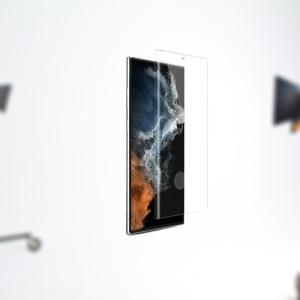
What is the use of UV Light for curved screen mobile phone’s screen protector?
Share
Description:
Mobile phone users around the world are known for using different accessories either to decorate their smartphones or to protect those phones like UV Light for curved screen mobile phone’s screen protector. There are many things involved in each of those products including the use of UV Lights.
Now you may ask, why mobile accessories makers such as screen protector makers are using UV lights? What’s the importance of it? In this article, we will try to explain and discuss everything so that you can understand it clearly.
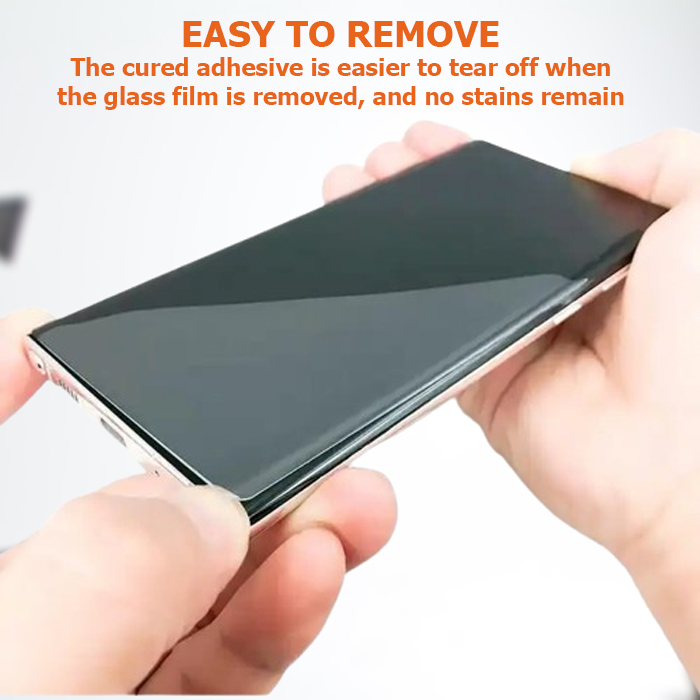
Let’s start with the basic.
What is UV light?
UV stands for Ultra Violet. Ultraviolet is a form of electromagnetic radiation with wavelength shorter than that of visible light, but longer than X rays. UV radiation is present in sunlight and constitutes about 10% of the total light from the sun.
UV light is classified into three components
1) Ultraviolet A ( UVA)
2)Ultraviolet B ( UVB)
3) Ultraviolet C (UVC)
There are lots of ways to produce UV lights in labs or at home by using
Metal Halide lamps
Mercury lamps
Plasma Torches
and many more
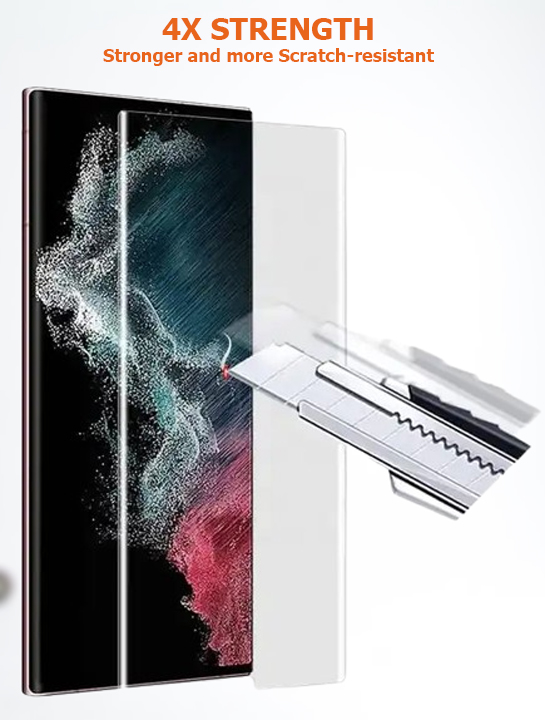
How screen protector maker using it?
Nowadays, smartphones with curved screens are becoming more and more common. The curved screen makes the front of the phone more three-dimensional and also increases the comfort of holding it to a certain extent. It has a better feel and also improves the appearance. Smartphone users prefer to use curved mobile phones for their good looks but it’s not very easy for the screen protector to stick to the surface of the original screen. Earlier, makers of screen protectors find it really difficult to handle this issue.
Mobile phone film for curved screens is typically made from a flexible material that can conform to the contours of the screen. This flexibility makes it more challenging to apply the film evenly and smoothly, as it may tend to curl or wrinkle.
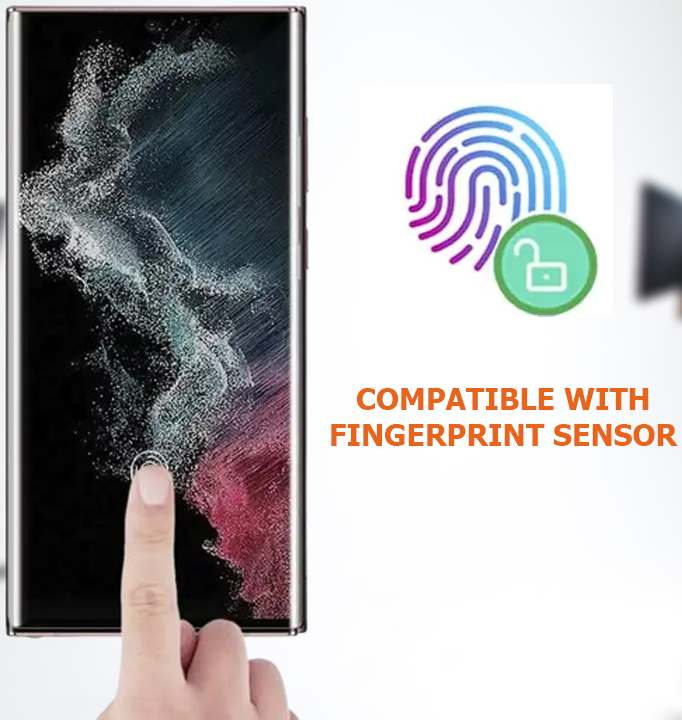
Sticky Problems
These days, mobile phone users like to add an extra layer of protection known as a screen protector on the screen of their mobile phones in order to avoid scratches on their mobile phones.
Unlike flat phones, ordinary people can easily attach the tempered film to flat phones. However, the tempered mobile phone film with a curved screen is not easy to buy or install, mainly because of the curved screen.
It is difficult for the tempered film to fit the screen of the mobile phone to a high degree. Thus, UV-tempered film was born.
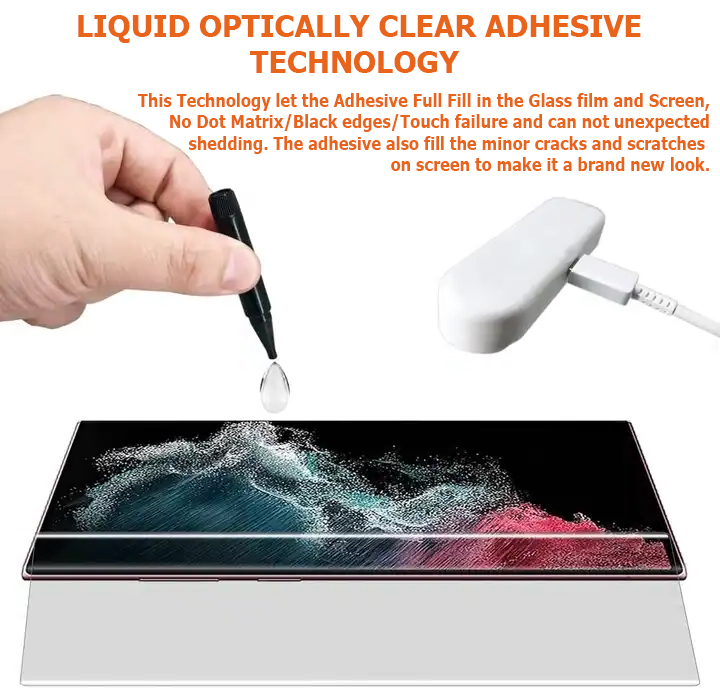
UV solution
UV light is often used to cure or harden the adhesive on mobile phone film for curved screens. This process is necessary to ensure that the film adheres properly to the screen and provides the desired level of protection.
Using UV light to cure the adhesive can help to improve the film’s adhesion and prevent it from peeling or lifting off the screen.
UV light is also used to harden the adhesive because it is a quick and efficient way to set the adhesive and ensure that it is ready for use.
The curing process typically takes only a few seconds to complete, and the UV light helps to ensure that the adhesive is fully cured and ready for use.
Overall, using UV light to cure the adhesive on mobile phone film for curved screens can help to improve the film’s adhesion, durability, and overall performance, and is an important step in the film installation process.
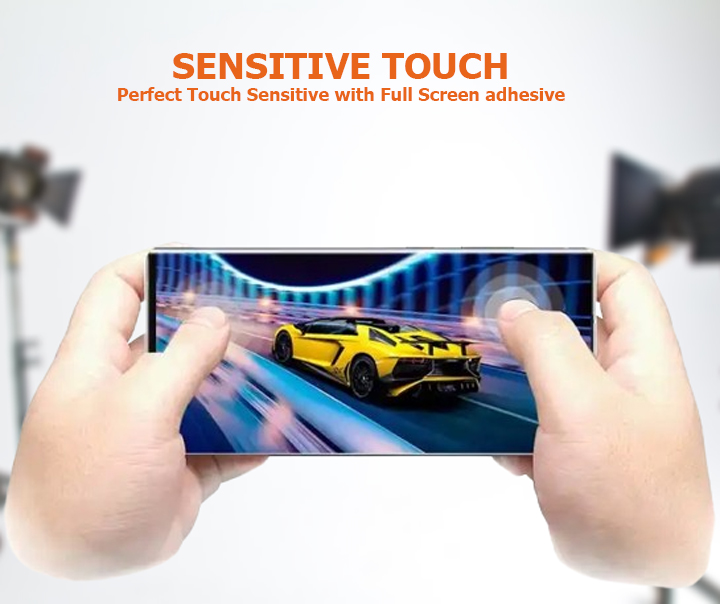
The principle of UV tempered film:
A photosensitizer is added to the specially formulated resin, and the resin (UV coating, ink, adhesive, etc.) changes (varies) from liquid to solid.
This change process is called “UV curing”.
The simple understanding is that the mobile phone screen is coated with a specific UV glue, and then the curved tempered film is initially attached tightly, and then cured with UV light to achieve the consistency between the mobile phone tempered film and the mobile phone.
In fact, UV lamps/UV flashlights have long been used in the fields of glue surface pre-curing and shadowless glue curing. Purple light like UV-L03, TK566, UVC31 of TANK007
